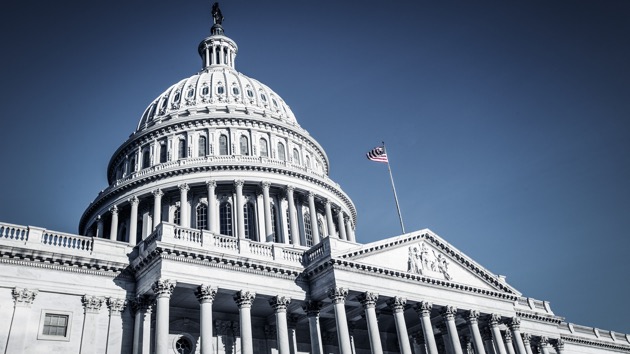By MARIAM KHAN, ALLISON PECORIN, GRACE MANTHEY and JONATHAN FAGG, ABC News(WASHINGTON) — The Senate approved the COVID-19 relief package and omnibus spending bill late Monday night by a vote of 92 to 6. Earlier in the same evening, the House passed the $900 billion COVID-19 rescue package in an overwhelming vote, 359 to 53.The bill now heads to President Donald Trump’s desk for his signature.The coronavirus pandemic is not only a health crisis but a financial one: shuttering businesses, upending entire industries and whipsawing financial markets — erasing trillions of dollars in the process.The COVID-19 relief bill was attached to a must-pass $1.4 trillion spending bill. The total cost of the package is $2.3 trillion, making it the second-largest economic stimulus in U.S. history. The CARES Act relief bill passed in March, is the largest stimulus package in modern American history.The new COVID-19 agreement includes $600 for individuals making up to $75,000 per year, $1,200 for couples making up to $150,000 per year, as well as a $600 payment for each dependent child.For example, a family of four under the income threshold would receive $2,400 in direct payments.This calculator from ABC News’ data journalism team tells you how much you may likely receive from the COVID-19 relief bill using the guidelines spelled out in the bill. The information you enter will not be stored or saved in any way.The bill provides $300 per week in enhanced federal unemployment benefits through March 14, 2021.Other key provisions of the bill include:
Providing more than $284 billion for businesses and reviving the Paycheck Protection Program, which expired over the summer.
Expanding eligibility under the program for nonprofits, local newspapers and radio and TV broadcasters, as well as allocates $15 billion for performance venues, independent movie theaters and other cultural institutions devastated by the restrictions imposed to stop the spread of the coronavirus.
Funding for loans from small and minority-owned lenders and another $20 billion to small business grants.
Providing billions of dollars for testing, tracing and vaccine distribution, as well as $82 billion for colleges and schools, $13 billion in increased nutrition assistance, $7 billion for broadband access and $25 billion in rental assistance.
Extending an eviction moratorium set to expire at the end of the year.
Ending the practice of surprise medical billing.
Copyright © 2020, ABC Audio. All rights reserved.












